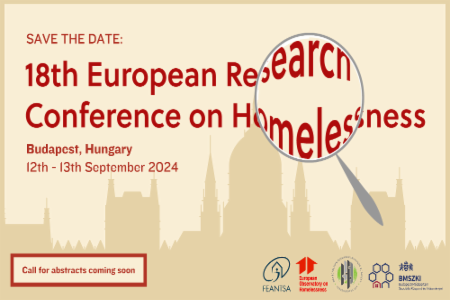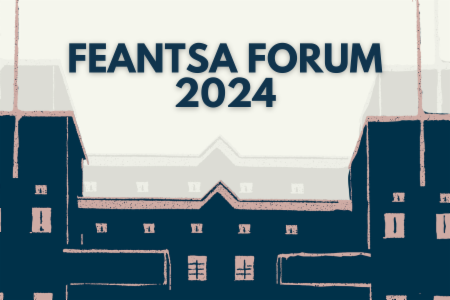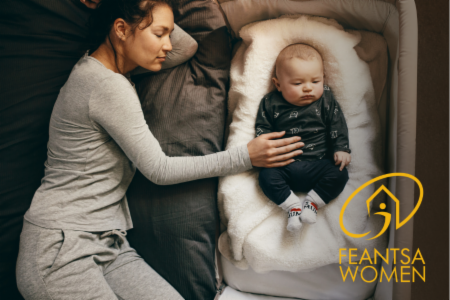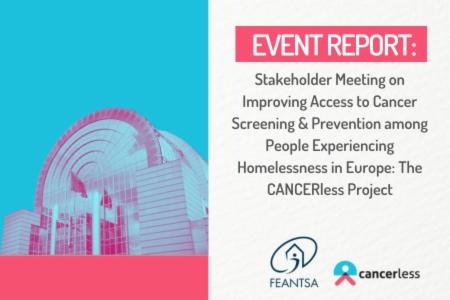Within a European Union that is struggling to reinvent itself, housing exclusion is emerging as a huge challenge. FEANTSA and the Fondation Abbé Pierre have jointly produced a biannual report "An Overview of Housing Exclusion in Europe" which highlights alarming evidence of rising homelessness in all European countries except Finland, and singles out cities such as London, Paris, Brussels, Dublin, Vienna, Athens, Warsaw and Barcelona as places where the housing system is particularly under strain.
Read the Second Overview of Housing Exclusion in Europe 2017
Mr Holliday
Mr Holliday used to sleep on friends' couches or offer to look after their pets whilst they were away so that he could have a place to stay. He then moved on to sleeping rough, before being given a flat which was damp, cold and expensive to heat. This flat was in such a poor, insalubrious condition that Mr Holliday deliberately made himself homeless again. It was not until he sought help from a community organisation that he felt strong and confident enough to apply for social housing and financial assistance.
"I've never had a wall to put a picture up. I never remember the people that I've lost, it's always been in a box or a bag."
In the European Union in 2014, 23% of poor households were unable to keep their home adequately warm and 25% of poor households were living in damp housing. No harmonised statistics on homelessness exist at the European level.
Mr Brändle
Mr Brändle is a German national who used to sleep rough in Barcelona. For one and a half years he slept in a park and would go to Arrels Fundació? for food and support. In 2015 he was given space in a flat to live, however, he was forced to stay in the living room. A second place after that allowed him to have a bedroom, but he lived there in very cramped conditions. The third house he stayed belonged to his girlfriend which he had to leave when the relationship broke down. Now he lives in a shelter run by Arrels.
"In my situation it is impossible to search for a room. The first question I'm asked is "do I have work?" No. And then they don't want to speak to me anymore."
In the European Union in 2014, 13% of poor households were in severe housing deprivation, i.e. were living in an overcrowded and unfit dwelling.
Ms. S
Before coming to Belgium, Ms S had studied and worked hard. After arriving in Belgium she was forced to flee an abusive husband. She then discovered that she had no documentation of her own and ended up in a shelter with her young son.
She was helped by the shelter to get access to some social support. However, it took months and months before a landlord gave her a chance to have her own flat.
"I went to apartment viewings. After many many viewings I realised there were things I had to say, things I shouldn't say. But no one ever gave me the chance to explain. I really wanted to tell them: I'm a good person. The situation wasn't my fault."
The flat is very small and she has to share a bed with her growing son. However, Ms S is happy and hopeful for the future.
"This won't last forever. We suffered, but we survived."
In the European Union in 2014, 23% of single persons with dependent children were living in overcrowded housing. That's almost one out of four single persons with dependent children.
Mr. Jibowu
Mr. Jibowu is a student living with his wife and children in Dublin. After living in his flat for eight-and-a-half years, his landlord served him with an eviction notice and raised the rent on the flat. He is now struggling to find accommodation for him and his family, as many landlords will not accept a tenant in receipt of housing benefits.
Now Mr. Jibowu is faced with the dilemma of continuing his studies in order to have the qualifications for a good job, or having to leave education in order to find a lower-paying job immediately so he can pay the rent.
"Most people lose their home because of financial difficulty, and I'm one of them."
In 2014 in the European Union, 40% of poor households were overburdened by housing costs, i.e. spending more than 40% of their disposable income on housing.





